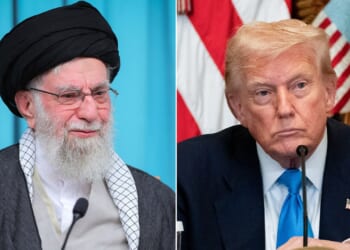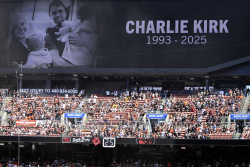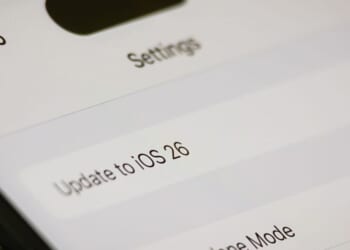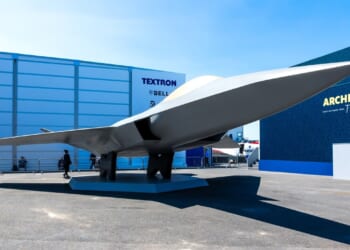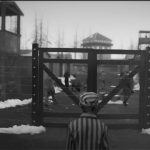It is very easy to sit in the shade of the modern world—the world that the violent peace of 1945 created—and condemn the sacrifices that needed to be made to bring that world about.
When President Harry S. Truman authorized the dropping of the first atomic bomb over Hiroshima, many of those in the know in the United States argued against it. After the bombs were dropped, even more prominent Americans indicated that they would not have supported dropping those bombs had they known about them. Today, an entire cottage industry of revisionist historians and pundits exist to denigrate the dropping of the atomic bombs over Hiroshima and Nagasaki.
But it’s important to remember why the bombs were dropped.
Why America Fought the Way It Did in World War II
From 1941 to 1945, following the Empire of Japan’s dastardly surprise attack on Pearl Harbor, the Americans fought the Japanese across the breadth of the Pacific, from Hawaii all the way to the Japanese Home Islands. The Japanese fought for every square inch of that territory. In that time, it is estimated that around 111,600 Americans died in the Pacific Theater.
America’s strategy for fighting Japan was the same as their strategy for fighting both Italy and Germany, the other two Axis Powers aligned with Japan during the Second World War: total surrender. Considering that it was Japan that struck America first, total, unconditional surrender was the only realistic option. Japan’s culture worshipped the Bushido code; they waged unremitting warfare and fought to the death.
One of the compelling factors behind the ultimate decision to drop the bombs was the way in which the Japanese defenders at Okinawa, one of the final Japanese held islands the United States Marines took before moving on the Japanese Home Islands, fought. Not only did the Japanese fight to the death there, but they even convinced the civilians to take their own lives, propagandizing them into believing that the Marines were coming to eat their children.
After the horror at Okinawa, US military planners balked at the fact that the proposed X-and-Y-Day invasions of Kyushu, the southernmost of Japan’s four home islands, would have cost anywhere between 250,000 and one million American lives. In fact, some outlier estimates reached up to four million casualties.
But for the price of two bombs, the Japanese war machine was broken with zero American lives lost. What’s more, anywhere from five to 10 million Japanese may have been killed in the X-Day and Y-Day invasions MacArthur was plotting. Instead, the Hiroshima bomb killed roughly 140,000 people, and the Nagasaki bomb killed another 80,000. Rather than five or ten million mostly Japanese civilians being killed over the course of a protracted US invasion, only around 200,000 were sacrificed for peace.
These are grim calculations, to be sure. Such are the realities of war. As President Harry S. Truman, the man who ordered the dropping of the bombs on Japan, said, “The Japanese began the war from the air at Pearl Harbor. They have been repaid many-fold.”
And whatever lessons 80 years of hindsight can provide, the fact remains that the jarring Pearl Harbor attacks and subsequent multi-year-long war against Japan imbued a degree of resentment toward Japan by the aggrieved Americans that modern people must understand. The bombings were partly about revenge. And that’s a component of war, too.
Just How Opposed to the Bomb Were MacArthur, Eisenhower, and LeMay?
Many revisionist historians and pundits today point to the list of notable Americans from the era who opposed, or claim they would have opposed, the atomic bombings of Japan. Notably, General Douglas MacArthur, the commander of all US forces in the Pacific, believed that the Japanese were on the verge of surrendering. In his view, had the Allies attempted to modify negotiation terms to include keeping Emperor Hirohito at least as a figurehead, they might not have needed to drop the bombs.
MacArthur was not the only Allied leader to express apprehension over the bombs. The Supreme Commander of the Allied Expeditionary Forces, US Army General Dwight D. Eisenhower, stated in his memoirs that he also believed that the Japanese were nearing surrender without the use of the bombs. He also feared how using such a weapon would “shock world opinion” (in today’s parlance, how it would harm American “soft power”). Further, Ike opposed the bomb’s use on moral grounds.
Even US Army Air Corps General Curtis LeMay, who had earned the nickname “Bombs Away” for his massive firebombings of Japan during the war, believed using the atomic bombs on Japan was militarily unnecessary.
There were others, too, who disapproved of the use of the bomb. But it should be noted that only a few years later, all three prominent military men would have radically different opinions of nuclear weapons. During the Korean War, MacArthur imploded his storied military career when he demanded that Truman drop nuclear bombs on China for their role in aiding North Korea during the Korean War. As Truman’s successor in the Oval Office, Eisenhower embraced the concept of “Massive Retaliation” at the outset of the Cold War with the Soviet Union—threatening overwhelming nuclear retaliation to any act of Soviet aggression against the US-led world system. And, of course, “Bombs Away” LeMay was one of the leading voices during the Cuban Missile Crisis who called for preemptive strikes against Soviet positions in Cuba, a step that would inevitably have led to nuclear war. He would later advocate nuking North Vietnam during the Vietnam War to end that conflict.
The revisionists who seek to claim that some of America’s greatest generals opposed Truman’s atomic bombings of Japan fail to properly contextualize how these men eventually behaved. After witnessing the devastation inflicted on Hiroshima and Nagasaki, they were understandably nauseous about the destructive power of America’s creation. But in time, they embraced nuclear weapons as legitimate forms of warfare.
The Atomic Bomb Stopped the Soviet Union, Too
There’s a final bit to this, too. By the time the Pacific War was drawing to a close, it was clear to all serious observers that the Soviet Union would be America’s great foe in the postwar era. Everything that occurred in 1945 in Europe and Asia was simply jockeying conducted by the two former wartime allies.
Stalin had long known about the Manhattan Project. And he understood that the Americans were aiming to conquer Japan and absorb it into their postwar capitalist structure. To avoid being left with nothing, Stalin moved his Red Army against the remnants of Japan’s forces stationed in Manchuria, China—intending to grab as much Japanese-held territory as possible—so as to dictate its future in the postwar era. Indeed, with the obliteration of Japanese forces in Manchuria, the Red Army gained access to hundreds of thousands of tons of war materiel—which they dutifully supplied to the Chinese Communists, giving them the edge they needed to defeat Chiang Kai-shek’s Nationalists in the ensuing civil war.
But in 1945, dropping the bombs on Japan sent a strong signal to the Soviets and set the conditions for the early phases of the Cold War in which the Americans, not the Russians, had the upper hand in Asia. Just a few years after the caustic events of Pearl Harbor, when a rival foreign power managed to conduct a devastating surprise attack on the United States, Washington was keen on not letting another power replicate that attack in the postwar era.
The Atomic Bomb Was the Least Bad Option
When revisionist historians decry America’s use of atomic weapons, they glaze over the alternatives to the bombings of Hiroshima and Nagasaki. They likewise ignore the fact that the Soviets were aiming to conquer at least half of Japan, consigning at least half of that population to the immiseration and tyranny of Soviet rule. And they downplay the apparent changes of heart that some of the biggest American wartime leaders had about the nuclear weapon issue just a few short years after those bombs were dropped on Japan, too.
It is very easy to sit in the shade of the modern world—the world that the violent peace of 1945 created—condemning the sacrifices that needed to be made to bring that world about. In fact, the bombs likely prevented a far darker, more tyrannical world from being built in the wake of World War II.
And while the West today has made several grievous errors in its development, one cannot lay the blame for these errors upon the difficult but necessary actions of those men who saved the world from the Axis Powers 80 years ago.
About the Author: Brandon J. Weichert
Brandon J. Weichert, a Senior National Security Editor at The National Interest as well as a contributor at Popular Mechanics, who consults regularly with various government institutions and private organizations on geopolitical issues. Weichert’s writings have appeared in multiple publications, including the Washington Times, National Review, The American Spectator, MSN, the Asia Times, and countless others. His books include Winning Space: How America Remains a Superpower, Biohacked: China’s Race to Control Life, and The Shadow War: Iran’s Quest for Supremacy. His newest book, A Disaster of Our Own Making: How the West Lost Ukraine is available for purchase wherever books are sold. He can be followed via Twitter @WeTheBrandon.
Image: Wikimedia Commons.




